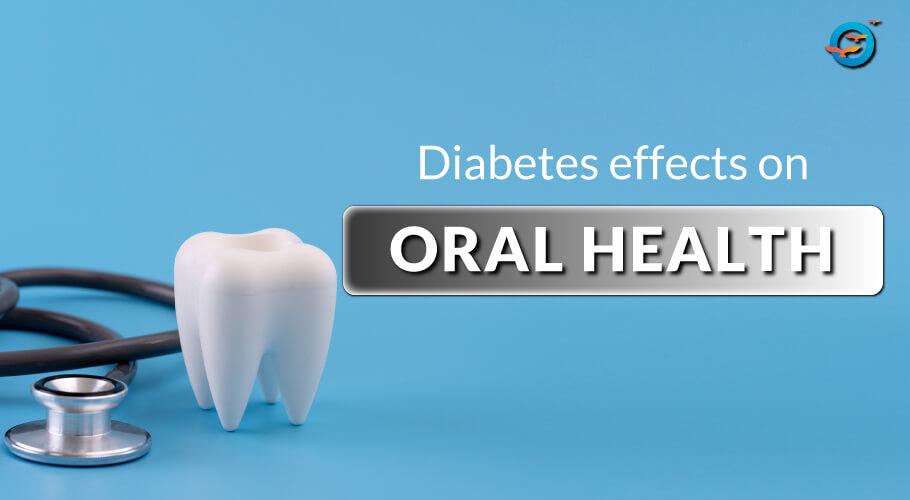Diabetes affect on your Oral Health
Diabetes results from the body’s inability to use insulin effectively, leading to high blood sugar (BSL). Over time, excess sugar damages organs—including the mouth—by weakening the immune system’s white blood cells. This makes it harder to fight bacteria, increasing the risk of oral health problems. The first step to protecting your mouth is to maintain recommended BSL.
Common oral health problems in diabetics include:
- Dry mouth: High blood sugar reduces saliva production, causing soreness, ulcers, and tooth decay.
- Gingivitis and periodontitis: Damaged blood vessels and weakened immunity allow bacteria to grow, leading to gum infections and advanced periodontal disease.
- Slow healing: Poor blood circulation delays recovery from dental surgeries.
- Oral thrush: High glucose in saliva and frequent antibiotic use create a breeding ground for fungal infections, often causing burning sensations in the mouth or tongue.
- Cavities: Elevated sugar in saliva feeds bacteria, increasing tooth decay risk—especially since diabetics often eat frequent small meals.
Prevention and care:
- Keep your HbA1C below 6.5% with regular blood sugar monitoring.
- Visit your dentist regularly and practice good oral hygiene—brush twice daily, floss, and clean dentures thoroughly.
- Stop smoking, as it greatly increases gum disease and slows healing.
- For dental surgery, inform your dentist about your diabetes, medications, and insulin use. Your doctor and dentist may coordinate on antibiotics or medication adjustments.
- If your BSL is poorly controlled, postpone elective surgery; treat urgent infections immediately. Follow post-surgery instructions carefully, as healing is slower in diabetics.
Good blood sugar control, healthy habits, and regular dental care can significantly reduce oral health problems linked to diabetes.
To read more about this, visit here.
https://www.freedomfromdiabetes.org/blog/post/Diabetes%20affect%20on%20your%20Oral%20Health/2617

